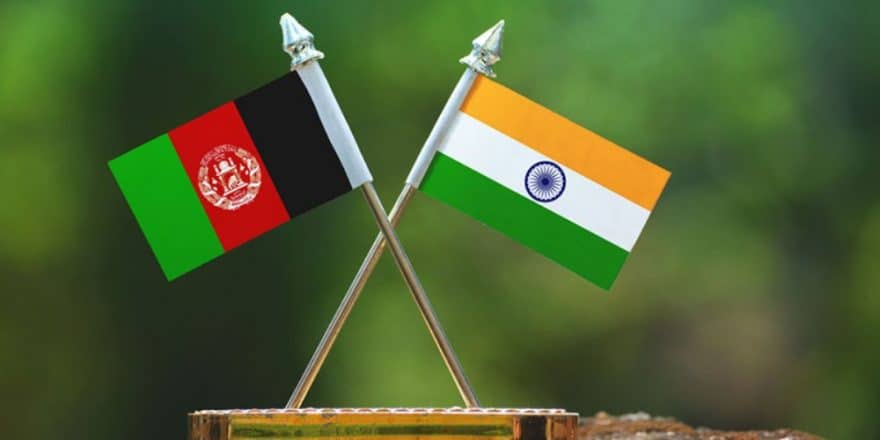United States Special Representative for Afghanistan Reconciliation Zalmay Khalilzad is back in the region for a third time during this COVID-19 pandemic to advance the peace deal signed with the Taliban and accelerate intra-Afghan negotiations.
Khalilzad’s visit comes on the heels of the recent report by the UN Security Council’s Analytical Support and Sanctions Monitoring Team. The report reveals that the Taliban continues to maintain links with the al-Qaeda, which is active in 12 of Afghanistan’s 34 provinces. The US-Taliban agreement, signed on February 29 in Doha, requires the Taliban to take a number of steps “to prevent any group or individual, including al Qa’ida, from using the soil of Afghanistan to threaten the security of the United States and its allies.”
The NATO’s Resolute Support Mission in Afghanistan is on record saying that in March “the Taliban refrained from attacks against Coalition Forces; however they increased attacks against ANDSF [Afghan National Defence and Security Forces] to levels above seasonal norms.” Indeed, throughout March, Afghanistan has seen violence with increasing brutality.
The fact remains that even as the President Ashraf Ghani-led government is all set to sit down for the much-awaited talks with the Taliban, the signs are ominous. Also, the fact that Khalilzad is again back in the region testifies that in spite of the UN report the US-Taliban peace accord will hold.
While the world has primarily been focussed on violence, the role of ideology has not been sufficiently discussed. Jihadist groups such as the al-Qaeda, ISIS-KP, and the LeT are jostling for space in Afghanistan, there are others such as the Hizb ut-Tahrir, which seeks to revive a caliphate, that is slowly but steadily infiltrating Afghan civil society. One thing is near certain — any peace deal and intra-Afghan understanding hammered out will result in establishing radical religiosity in the country.
In the midst of these developments, India, which has given developmental aid of more than $3 billion, finds itself sidelined in Afghanistan. Both Khalilzad and Russian Special Envoy for Afghanistan Zamir Kabulov have called on India to engage with the Taliban, but New Delhi is weighing its options.
India should opt for a regional approach, involving the Central Asian Republics (CARs) — Kazakhstan, Kyrgyzstan, Tajikistan, Turkmenistan, and Uzbekistan. Too often the role and scope of these countries in Afghanistan’s stabilisation and future are neglected. Afghanistan shares its longest border of 2,800 km with Uzbekistan, Tajikistan, and Turkmenistan. This proximity, along with historical and cultural linkages, makes the CARs a direct stakeholder in Afghanistan’s peace and stability.
The primary threat is of jihadist violence spilling over into the CARs. The region has seen many residents flock to join the ISIS. In case the ISIS-KP embeds itself in Afghanistan, there is a fear that jihadists from the CARs would take the jihad back home. Groups such as the Islamic Movement of Uzbekistan continue to pose a threat to the region, and any signs of religious radicalism is immediately put down with a heavy hand in the CARs.
The second threat is that continuing instability within Afghanistan threatens to destabilise the region, with violence spilling over into the neighbouring countries, such as Tajikistan which has already suffered a civil war. Yet another headache is the drug trade which, emerging from Afghanistan, encompasses Tajikistan, Kyrgyzstan, Uzbekistan, and further on Russia and Europe.
With so much at stake, the CARs, which was initially hesitant to play an active role, has increasingly become focussed on Afghanistan. The CARs has also realised the potential of Afghanistan to be a beneficial neighbour. It has also initiated infrastructure projects and developmental aid in Afghanistan.
It is common knowledge that stabilising the Afghan economy and integrating it into the regional economy would go a long way in stabilising the country. In particular, Afghanistan’s potential as a lucrative transit country to the markets of South and Southeast Asia has seen the countries engage in a number of economic initiatives and connectivity project, such as the Regional Economic Cooperation Conference on Afghanistan, the Lapiz Lazuri Route Agreement, the Heart of Asia Process and so on. In the same spirit projects such as the CASA-1000 and the TAPI pipeline, in which India is involved, were initiated. Today, more than 50 percent of Afghanistan’s trade is with its immediate neighbours.
In March 2018, Uzbekistan hosted a conference on Afghanistan in which more than 20 countries including India participated, paving the way for intra-Afghan talks. All the CARs view Taliban as an important stakeholder in Afghanistan.
India has good ties with the CARs and together participate in the common platform — the Shanghai Cooperation Organisation. While Russia and China are embroiled in differences with the US, the CARs enjoys cordial ties with the US.
This is why in the 2019 India-Central Asia Dialogue held in Samarqand in Uzbekistan, there was an Afghan component too. India and the CARs pledged to assist Afghanistan through the “implementation of joint infrastructure, transit and transport, energy projects, including regional cooperation and investment projects.”
India will find more common ground with the CARs regarding Afghanistan than with any other country. Kabul views Tashkent as central to its peace process, which would help reduce Islamabad’s influence. Co-ordinating with the CARs could help counter Pakistan’s role and influence in Afghanistan, even as it can incentivise Pakistan to pursue peace and cease to view Afghanistan through an Indian lens.
Finally, the CARs would act as the model Muslim State for Afghanistan to emulate. All of them are Muslim-majority countries with high levels of education, rule of law, women’s empowerment and respect for diversity, practicing moderate Islam — the perfect foil to ideologies of murderous religiosity. For war, after all, begins in the minds of men.













